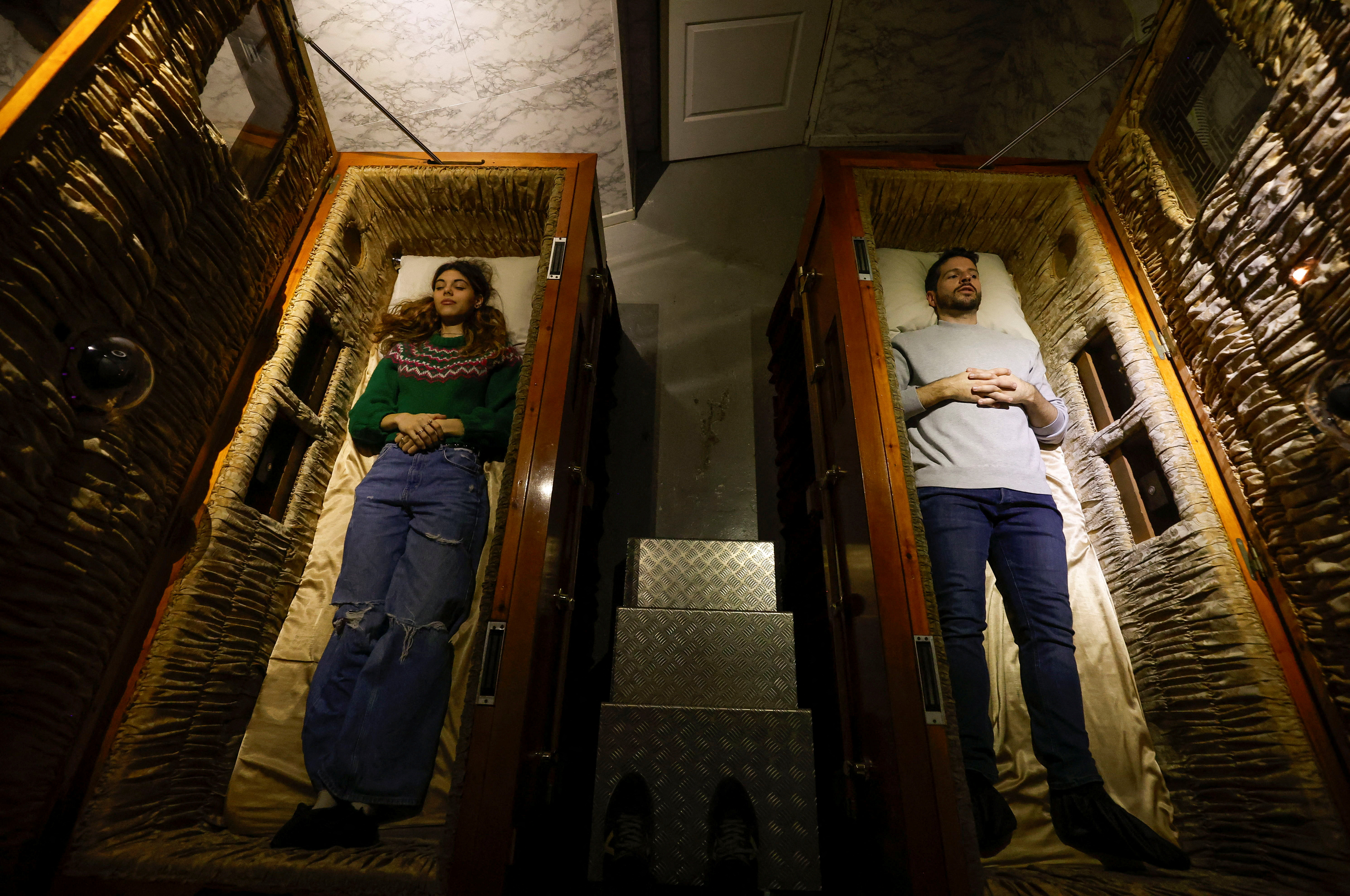Group Activities at Minneapolis Escape Room-- Perfect for Friends and Family
Group Activities at Minneapolis Escape Room-- Perfect for Friends and Family
Blog Article
Team Methods: Just How to Collaborate Efficiently in an Escape Area
Teams have to proactively listen to each participant's insights, appoint duties that line up with specific staminas, and preserve regular check-ins to guarantee focus and protect against redundancy. By fostering an environment that values cohesion and versatility, teams can dramatically enhance their effectiveness and success rates.
Establish Clear Communication
To promote clear interaction, it is vital to mark a main factor of contact for information dissemination. Short, focused updates from each team participant can maintain the group notified without frustrating them with info.

Designate Duties Tactically
While clear interaction sets the structure for reliable team effort, designating functions purposefully ensures that each staff member's toughness are utilized successfully. In a retreat room circumstance, the time-sensitive and complicated nature of obstacles requires a well-organized method to job delegation. By identifying and leveraging private competencies, teams can maximize their analytical capacities and enhance overall performance.
Someone with an eager eye for detail might excel in finding covert items, while a rational thinker might be much better matched to addressing problems. This duty frequently needs solid business and interpersonal skills.
Second, make sure that functions are versatile and versatile. As brand-new difficulties arise, the team should be able to pivot, reallocating tasks as required. This adaptability helps maintain momentum and prevents bottlenecks that can take place as a result of stiff function projects.
Ultimately, a calculated technique to function project not only optimizes the staminas of each employee but additionally cultivates a natural atmosphere, driving the team in the direction of an effective retreat.
Use Diverse Skills
Identifying and utilizing the varied skills within your group can substantially raise your efficiency in a getaway area. Each staff member brings one-of-a-kind staminas to the table, and efficiently leveraging these capacities can speed up analytic and enhance total efficiency. A group member with solid logical skills may succeed at figuring out click to investigate intricate codes or patterns, while an additional with keen observational capacities may swiftly find covert hints that others could forget.
Motivate team members to voice their understandings and concepts without delay, making certain that all possible options are taken into consideration. Furthermore, designating tasks that align with each member's strengths can prevent bottlenecks and make certain that progression is continual.
Additionally, diversity in skills frequently translates to variety in assuming designs, which is vital in a getaway room setup. While some obstacles may require sensible thinking and accuracy, others might profit from creative and association of ideas. By acknowledging and leveraging this diversity, teams can attend to a wider variety of challenges better, consequently enhancing their opportunities of an effective getaway.
Manage Time Successfully

First, allocate initial minutes for a quick study of the area. Recognize noticeable challenges and divide tasks based upon staff member' staminas, making certain that no one is still. Set internal time checkpoints to review progression websites regularly; for example, objective to have half the puzzles solved by the mid-point of the video game. This method can assist maintain the group focused and prevent time from sliding away unnoticed.
In addition, prevent one-track mind. If a challenge is taking too long, revolve team members or carry on to an additional difficulty, returning later on with fresh point of views. Communication is extremely important-- keep every person updated on solved challenges and remaining tasks to stay clear of repetitive efforts.
Last but not least, use any hints or clues moderately but purposefully - best escape room. Knowing when to request help can conserve valuable time. By adhering to these time management concepts, teams can considerably boost their chances of an effective and enjoyable getaway area experience
Debrief and Reflect
Representation is an important aspect of team advancement and renovation in the context of escape spaces. As soon as the challenge is completed, whether effectively or otherwise, it is essential for the group to involve in an organized debriefing session. This process allows staff member to assess their performance, determine staminas, and determine locations for enhancement.
Start the debrief by discussing what went well. Highlight particular circumstances of reliable interaction, problem-solving, and collaboration. Acknowledging these favorable behaviors strengthens them and urges their rep in future obstacles.
Go over minutes of complication, miscommunication, or inadequate methods. Urge an open and positive dialogue where group participants can share their viewpoints without worry of criticism.
Conclusion
In final thought, effective collaboration in an escape area is useful link based upon clear communication, strategic role jobs, the reliable usage of diverse skills, and skillful time monitoring. Normal check-ins and organized debriefings are essential for maintaining emphasis and fostering continual renovation. By developing a natural and adaptive team environment, the possibility of successfully fixing challenges and attaining the purpose of escaping the area is substantially improved. This method not just makes certain success but likewise promotes collective growth and knowing.
Report this page